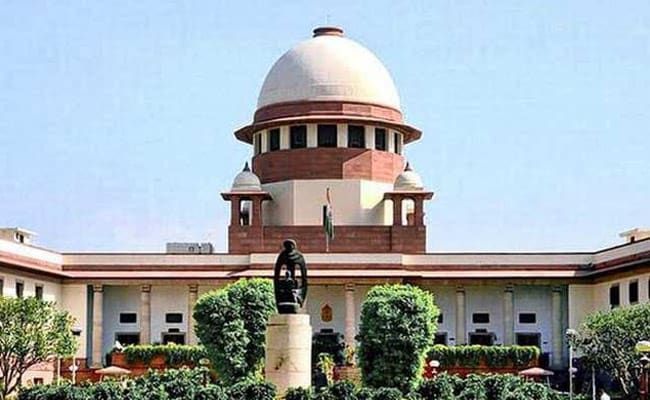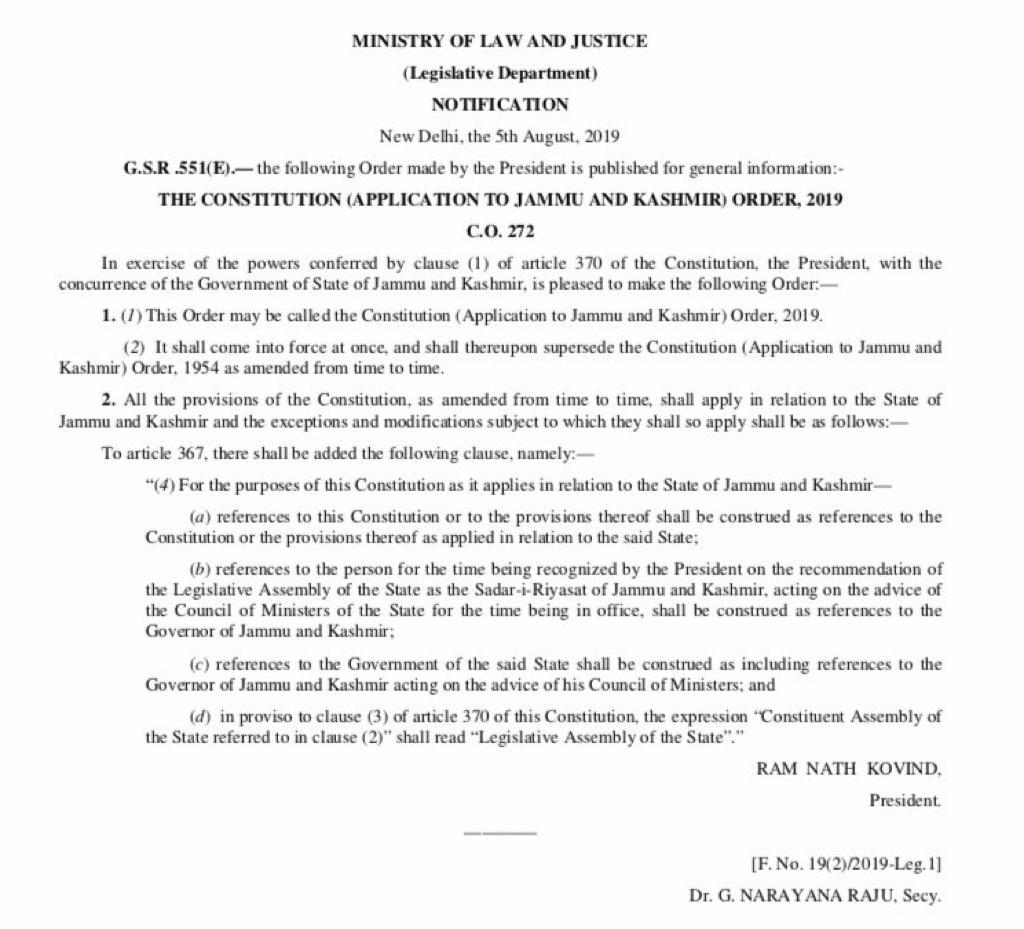Article 370 of the Constitution, which bestowed special status on the erstwhile state of Jammu and Kashmir, was a "temporary provision", the Supreme Court ruled on Monday. In a landmark verdict, the court unanimously upheld the Centre's August 5, 2019 decision to abrogate provisions of Article 370, while directing restoration of statehood for Jammu and Kashmir at the earliest and holding of the assembly elections by September 30, 2024.
The Centre in 2019 scrapped the special status and split the state into two Union Territories - Jammu and Kashmir and Ladakh.
The verdict from a five-judge Constitution bench led by Chief Justice of India DY Chandrachud comes in response to a slew of petitions challenging the Centre's move four years ago. After a 16-day-long hearing, the Supreme Court reserved its judgment on September 5.
The petitioners argued that Article 370 cannot be scrapped unilaterally by the Centre, since the powers of the Constituent Assembly were vested in the Jammu and Kashmir legislature after it was dissolved in 1957.
Here are the HIGHLIGHTS on the big story:
 Article 370 Decision: In Historic Jammu And Kashmir Ruling, Supreme Court Sets Election Deadline
Article 370 Decision: In Historic Jammu And Kashmir Ruling, Supreme Court Sets Election Deadline Article 370 Hearing: Not Every Centre's Decision Can Be Challenged, Says Chief Justice
Article 370 Hearing: Not Every Centre's Decision Can Be Challenged, Says Chief Justice Key Takeaways From Supreme Court's Article 370 Judgment
Key Takeaways From Supreme Court's Article 370 Judgment "Wounds Require Healing": Justice Kaul's Separate Order On Article 370
"Wounds Require Healing": Justice Kaul's Separate Order On Article 370Dil na umeed tou nahi ⁰Na kaam hi tou hai ⁰Lambi hai gham ki shaam⁰Magar shaam hi tou hai
- Omar Abdullah (@OmarAbdullah) December 11, 2023
 "Resounding declaration of hope, progress, unity": PM Narendra Modi after Supreme Court backs scrapping of Jammu & Kashmir special status
"Resounding declaration of hope, progress, unity": PM Narendra Modi after Supreme Court backs scrapping of Jammu & Kashmir special status Omar Abdullah To GN Azad: What Kashmir Leaders Said On Article 370 Ruling
Omar Abdullah To GN Azad: What Kashmir Leaders Said On Article 370 Ruling#WATCH | On Supreme Court constitutionally validating the removal of Article 370 in Jammu and Kashmir, senior Congress leader and Maharaja Hari Singh's son Karan Singh says, "A section of people in J&K who will not be happy with this judgment, my sincere advice is that they... pic.twitter.com/4xm4x06E8S
- ANI (@ANI) December 11, 2023
🔴Watch LIVE: Historic #Article370 verdict today. Live proceedings from the Supreme Court ⬇️ https://t.co/vqhOu0GZfr
- NDTV (@ndtv) December 11, 2023
The Lt Governor said the allegations are "totally baseless".#WATCH | On reports of J&K leaders put under house arrest ahead of SC verdict on abrogation of Art 370, LG Manoj Sinha says, "This is totally baseless. No one has been put under house arrest or arrested due to political reasons in J&K. It is an attempt to spread rumours." pic.twitter.com/CHvRh28Pu1
- ANI (@ANI) December 11, 2023

Courts
- Kapil Sibal (@KapilSibal) December 11, 2023
Some battles are fought to be lost
For history must record the uncomfortable facts for generations to know
The right and wrong of institutional actions will be debated for years to come
History alone is the final arbiter
of the moral compass of historic decisions
#Kashmir | Security heightened in Srinagar ahead of the Supreme Court's verdict on the batch of petitions challenging the abrogation of #Article370 pic.twitter.com/c6lqxeOiQ0
- NDTV (@ndtv) December 11, 2023
Was scrapping #Article370 that gave #JammuAndKashmir its special status constitutionally valid? NDTV's @nazir_masoodi, @arvindgunasekar with more details. pic.twitter.com/htkDYJ8MhA
- NDTV (@ndtv) December 11, 2023

